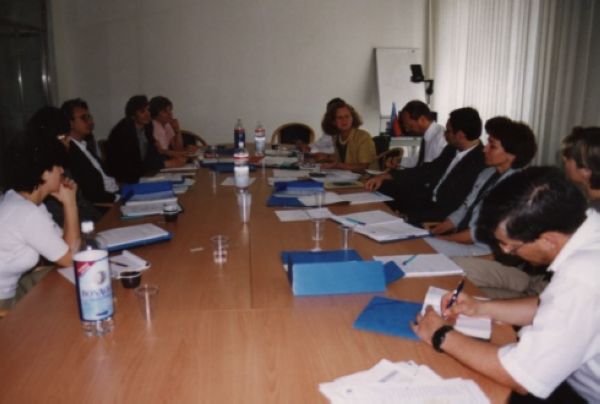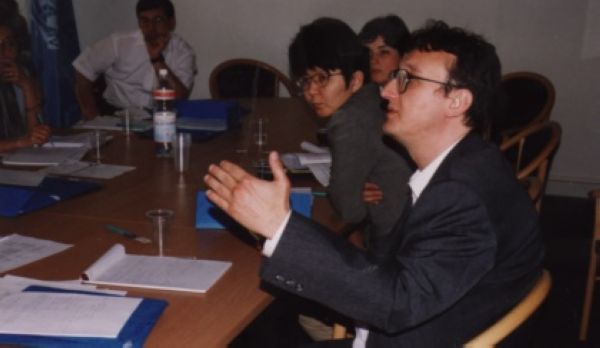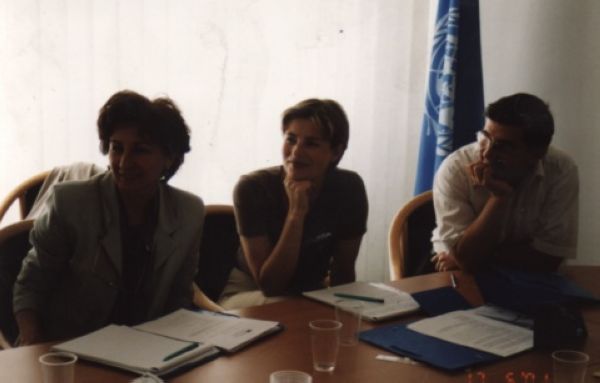Training of trainers
Bratislava, Slovakia, May 17-22, 2001
Written by Ieva Lazareviciute, Project Expert
NISPAcee with the support of the UNDP REBC regional Support Centre is initiating the advisory training programme focused on fostering the successful implementation of public administration reforms throughout the region through the development of the indigenous advisory capacities.
Within the framework of this programme a manual for advisors “Building Advisory Capacities” and training course “How to be a better policy advisor” are currently under development.
The implementation of the project began in February 2001 with the survey of training needs. A set of questionnaires was distributed among NISPAcee member institutions and offices of the national governments responsible for public administration reform in order to better understand the current situation with the demand and supply of policy advice in the various states of the region. All of the respondents provided detailed answers and insights, and allowed drawing some interesting conclusions. A report on the findings of this survey is currently being finalised and will published in later NISPAcee publications.
Initial findings of the survey have already been discussed in the meeting of the core international team of consultants and trainers. The team of trainers was selected combining advisory and training experience and balancing out regional representation. Currently the team includes representatives from
The main objectives of this meeting were:
1. To discuss and reach an agreement on the general framework for the development of the ‘Manual for Advisors.’
2. To discuss the format and approach to the advisory training in the region.
3. To review action training methodology and its application for the training course ‘How to be a better advisor?’
The meeting was facilitated by experienced international advisers Michal Ben-Gera (formerly with the OECD SIGMA) and Miroslav Grochowsky (
As a result of this meeting the team has developed detailed outlines for the manual and two three-day training courses, targeting the academicians working in the field of public administration who are interested in participating in policy advice delivery to their governments and would like to improve their skills in this area. The course is being designed according to the needs of those beginning or intending to get involved in policy planning and advice provision to their governments.
The team also argued that due to the current state of development of public administration as a field of study in the region, it is important to emphasise that the course will not be reserved to those who are working in the institutes and departments of public administration only. Experience shows that the majority of the academicians in the region tackling various public administration issues do not necessarily call themselves ‘scholars of public administration’. They may associate themselves with the fields of economics, law, management, political science, etc. This is characteristic to academic institutions throughout continental
Participants
Gyorgy Gajduschek, Hungary
Michal Ben-Gera, Israel
Meruert Makhmutova, Kazakhstan
Ieva Lazareviciute, Lithuania
Ricardas Malkevicius, Lithuania
Sorin Dan Sandor, Romania
Ludmila Malikova, Slovakia







 Price:
Price: 









